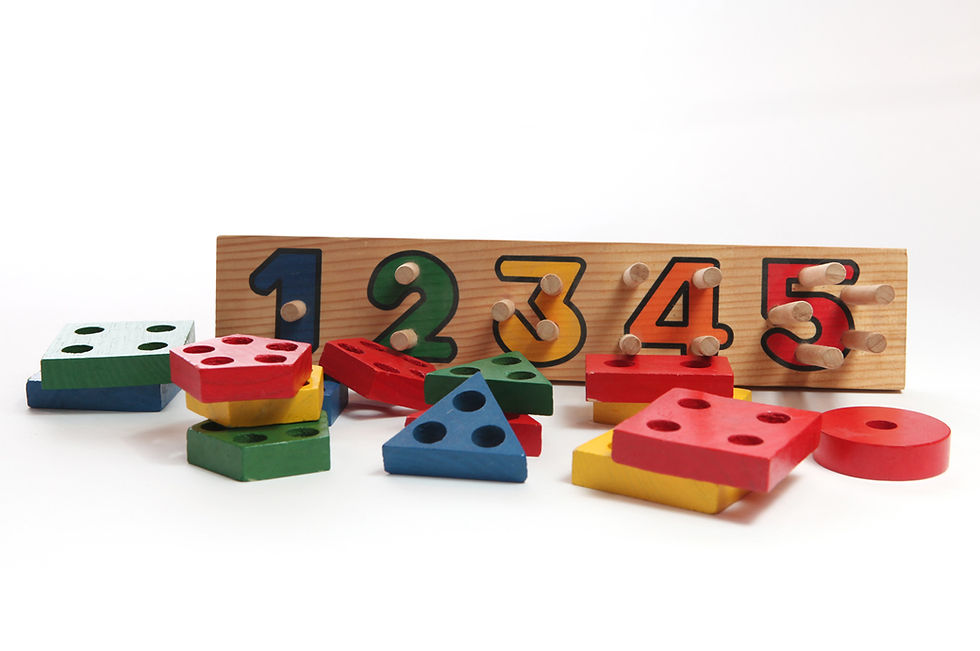Supporting Your Child's Math Skills: Practical Strategies for Parents
- Nigel Porter

- Jun 14, 2023
- 3 min read

Introduction:
Mathematics is a fundamental subject that plays a crucial role in our daily lives. As parents, we have the power to shape our child's mathematical journey by fostering a positive attitude towards math and providing them with the right support. In this blog post, we will explore practical strategies and engaging activities that can help support your child's math skills, making learning an enjoyable experience for both of you.
1. Cultivate a Positive Attitude Towards Math:
One of the most effective ways to support your child's math skills is to promote a positive mindset. Avoid negative comments about math and emphasise the importance of perseverance and problem-solving. Show enthusiasm for math and highlight its real-life applications to help your child see its relevance beyond the classroom.
2. Create a Math-Rich Environment:
Immerse your child in a math-rich environment by incorporating math-related activities into their daily routine. Here are a few ideas:
a) Math Games: Engage in board games, card games, or online math games that encourage critical thinking, problem-solving, and numerical fluency.
b) Math in Everyday Situations: Involve your child in practical math tasks such as cooking, grocery shopping, or measuring ingredients. This helps them understand the relevance of math in their daily lives.
c) Math Books and Puzzles: Introduce math-themed books and puzzles that make learning fun. Look for books that present mathematical concepts in an engaging and accessible manner.

3. Use Manipulatives:
Manipulatives are physical objects that children can touch, move, and manipulate to visualise and understand mathematical concepts. They provide a hands-on approach to learning and can be especially beneficial for young learners. Here are a few examples:
a) Counting with Manipulatives: Use objects like buttons, blocks, or beans to teach counting, addition, and subtraction. This helps children develop a concrete understanding of numbers.
b) Fraction Fun: Introduce fraction concepts using paper plates, pizzas, or other objects that can be divided into equal parts. This helps children visualise and comprehend fractions more easily.

c) Geometric Shapes: Utilise tangrams, pattern blocks, or magnetic shapes to explore geometry and spatial reasoning. Encourage your child to create and identify shapes in their surroundings.
4. Engage in Problem-Solving:
Problem-solving is a crucial skill in mathematics. Encourage your child to tackle math problems and puzzles, fostering their critical thinking abilities. Here are some strategies to facilitate problem-solving:
a) Break It Down: Help your child break down complex problems into smaller, manageable steps. Guide them in identifying relevant information and considering different approaches.
b) Real-Life Scenarios: Present math problems within real-life contexts to make them more relatable and engaging. For example, ask your child to calculate the tip at a restaurant or determine the best deal while shopping.

c) Family Problem-Solving Sessions: Set aside time for family problem-solving sessions, where everyone collaborates to solve math puzzles or brain teasers. This creates a supportive and stimulating environment.
5. Utilize Online Resources:
The internet offers a wealth of educational resources to support your child's math learning. Explore the following online tools and platforms:
a) Interactive Websites: Websites like Khan Academy, Math Playground, and IXL provide interactive math lessons, practice exercises, and tutorials suitable for different grade levels.
b) Educational Apps: Install math-related apps on smartphones or tablets that offer engaging activities and games aligned with your child's learning level.
c) YouTube Tutorials: Online platforms such as YouTube feature numerous math tutorials and explanatory videos that can supplement your child's learning.
Conclusion:
Supporting your child's math skills doesn't have to be daunting. By fostering a positive attitude, creating a math-rich environment, using manipulatives, engaging in problem-solving, and utilising online resources, you can empower your child to excel in mathematics. However, it's important to remember that every child learns differently, and some may require additional support. If you notice your child struggling or needing extra guidance, don't hesitate to seek the assistance of a qualified math tutor.
A tutor can provide personalised instruction, identify areas of improvement, and tailor learning experiences to meet your child's specific needs. They can offer a structured and systematic approach to learning math, ensuring that your child grasps key concepts and builds a solid foundation. A tutor can also help boost your child's confidence, motivation, and overall enjoyment of mathematics.
When choosing a tutor, consider their qualifications, teaching style, and experience working with children. Look for someone who can establish a positive rapport with your child and create a supportive learning environment.
Remember, supporting your child's math skills is a journey that requires patience, encouragement, and ongoing involvement. Celebrate their progress, and don't be discouraged by setbacks. By implementing the strategies discussed in this blog post and seeking the guidance of a tutor when necessary, you are providing your child with the tools and support they need to succeed in math and develop lifelong mathematical skills. Together, you can foster a love for math and pave the way for their academic success.




Comments